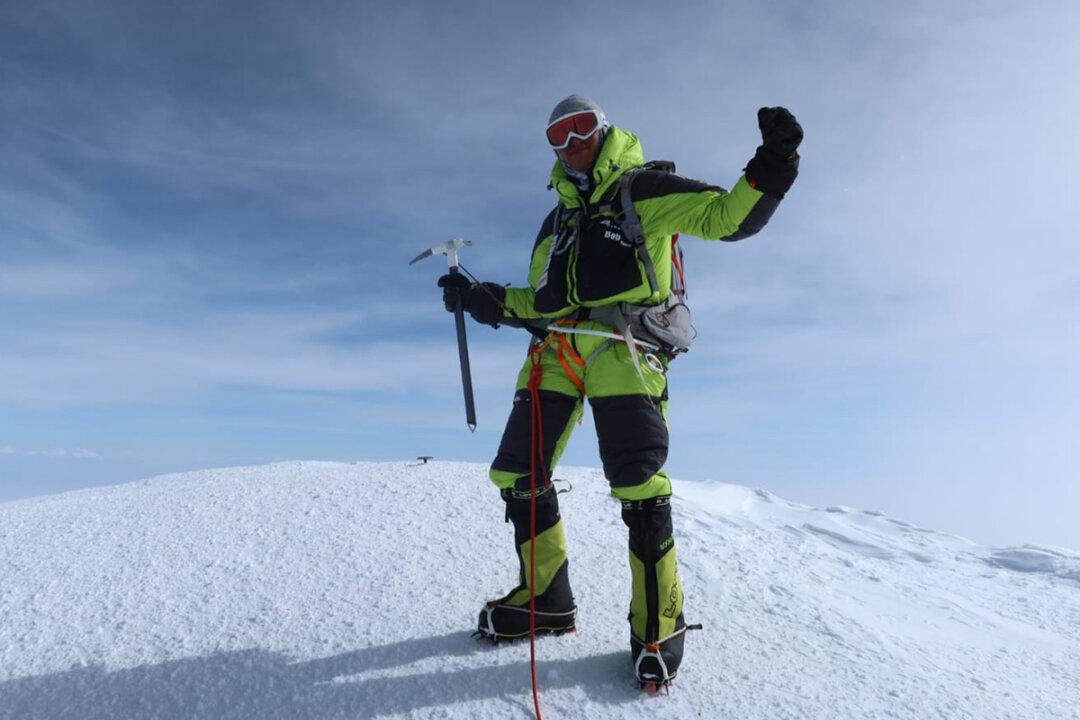An 18-year-old Hong Kong youth Bob Tsang Long-kit has climbed the six tallest peaks on seven continents. He completed Mt. Denali, the highest peak in North America at 6,190 metres (20,310 feet)) on June 12 2022.
“Compared with other peaks, climbing Mt. Denali is the most exciting and most harsh, and it is also the most memberable trip for me, since I had to support myself throughout the whole process, carrying 110 pounds of baggage on an 11-day trip. The temperature difference between day and night was 80 degrees Celsius (176 degrees Fahrenheit), the physical requirements were too demanding!” he told the Epoch Times reporter.




